
Все лк демидюк
.pdf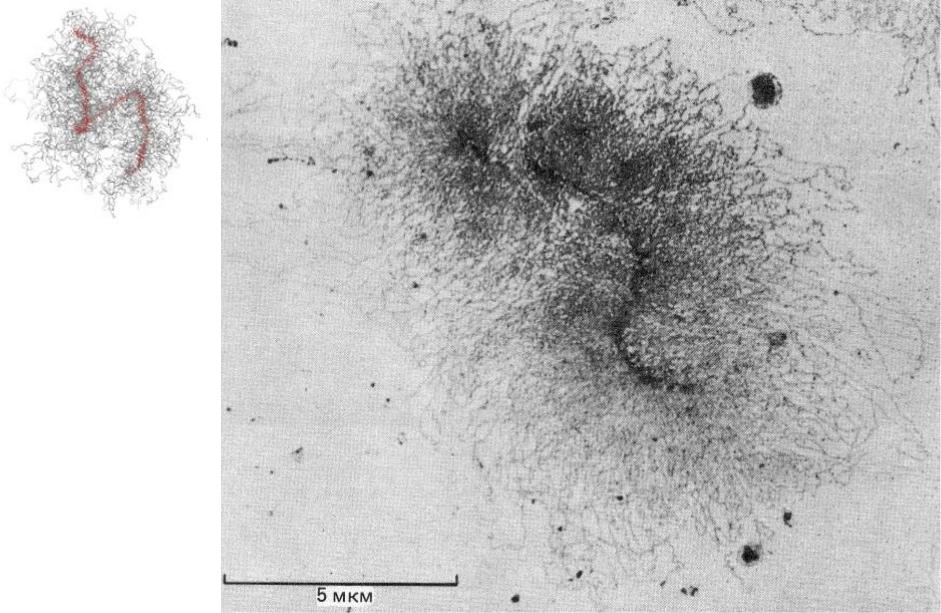
16.1 |
УПАКОВКА ДНК В ХРОМОСОМАХ |
|
Петлевые участки (домены) |
|
|
|
|
Электронная
микрофотография
одиночной
хроматиды
митотической
хромосомы насекомого. Специальная обработка позволяет
визуализировать петли
хроматина, отходящие от центра хроматиды.
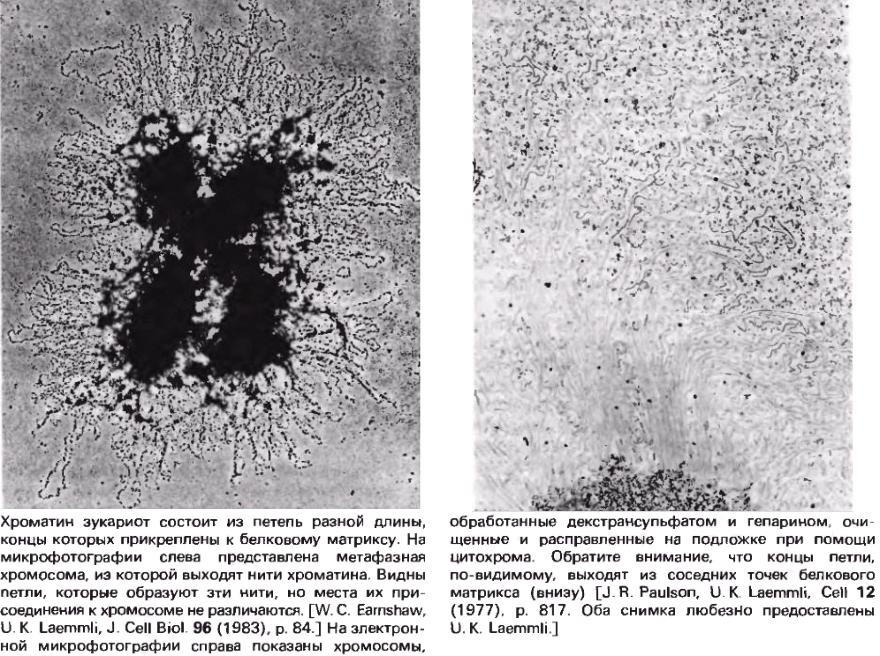
16.2 |
УПАКОВКА ДНК |
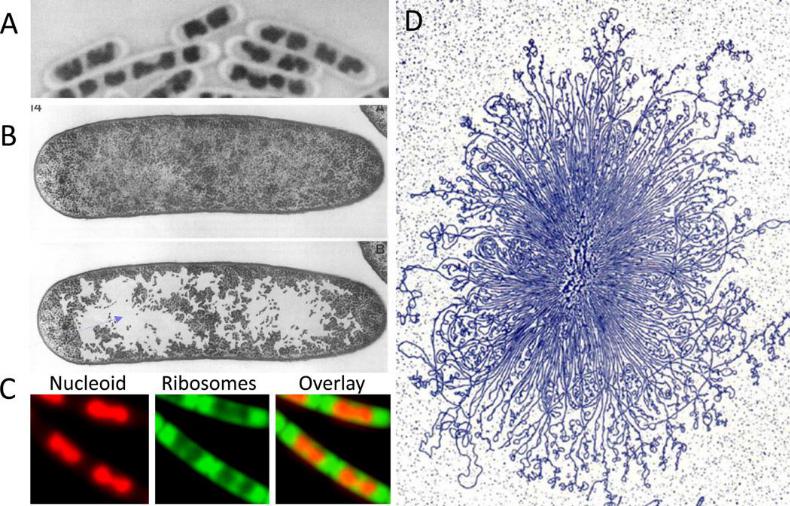
16.3 |
The bacterial nucleoid |
ribosomefree space
(A) B. subtilis nucleoid stained with Giemsa using acid-treated cells. (B) The nucleoid of growing E. coli in thin section after cryo-fixation followed by freeze-substitution. The upper and lower panels show the same section; in the lower panel, the ribosome-free spaces were enhanced by coloring by hand. (A) and (B) are adapted from Robinow and Kellenberger 4. (C) Nucleoid (stained with DAPI, colored red) and ribosomes (RplA-GFP, colored green) in live B. subtilis cells growing in rich media. Despite this commonly depicted cloud-like appearance of the bacterial chromosome, the morphology of the nucleoid varies among bacteria, and is influenced by growth rate and environmental conditions. For example, the nucleoid in C. crescentus, and in slow-growing E. coli and B. subtilis, appears more diffuse and occupies a greater proportion of the cell cytoplasm (not shown). (D) A gently isolated E. coli nucleoid bound by cytochrome C, spread on an EM grid, stained with uranyl acetate and visualized by transmission electron microscopy. Adapted from Physics in the twentieth century. Nature Reviews Genetics 14, 191-203 (2013)
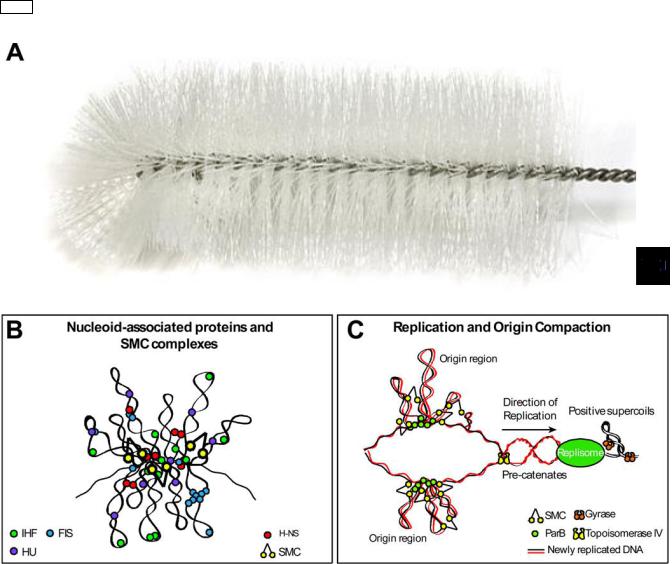
16.4Topological organization of the bacterial chromosome
bottlebrush model
HU, H-NS, FIS и IHF –
гистоноподобные белки – участвуют в организации бактериальной хромосомы, а также влияют на экспрессию генов, репликацию и рекомбинацию ДНК.
mov Белки из семейства SMC
(structural maintenance of chromosomes) играют роль
«конденсинов» – суперспирализуют бактериальную ДНК, а также участвуют в ее репарации, рекомбинации, сегрегации дочерних хромосом и других процессах.
(A) Schematic representation of the bottlebrush model of the nucleoid. This diagram depicts the interwound supercoiled loops emanating from a dense core. The topologically isolated domains (microdomains) are on average 10 kb and therefore likely encompass several branched plectonemic loops. (B) Schematic representation of the small nucleoid-associated proteins and SMC. These proteins introduce DNA bends and also function in bridging chromosomal loci. (C) The diagram depicts replication fork progression and compaction of the origin region. Replication generates positive supercoils ahead of the fork, which can diffuse behind the replisome producing pre-catenanes. Positive supercoils are removed by DNA gyrase and pre-catenanes are unlinked by Topo IV. Newly replicated origin regions thought to be compacted by the SMC
complexes that are recruited to the origin and by the action of small nucleoid-associated proteins (not shown).
Nature Reviews Genetics 14, 191-203 (2013)
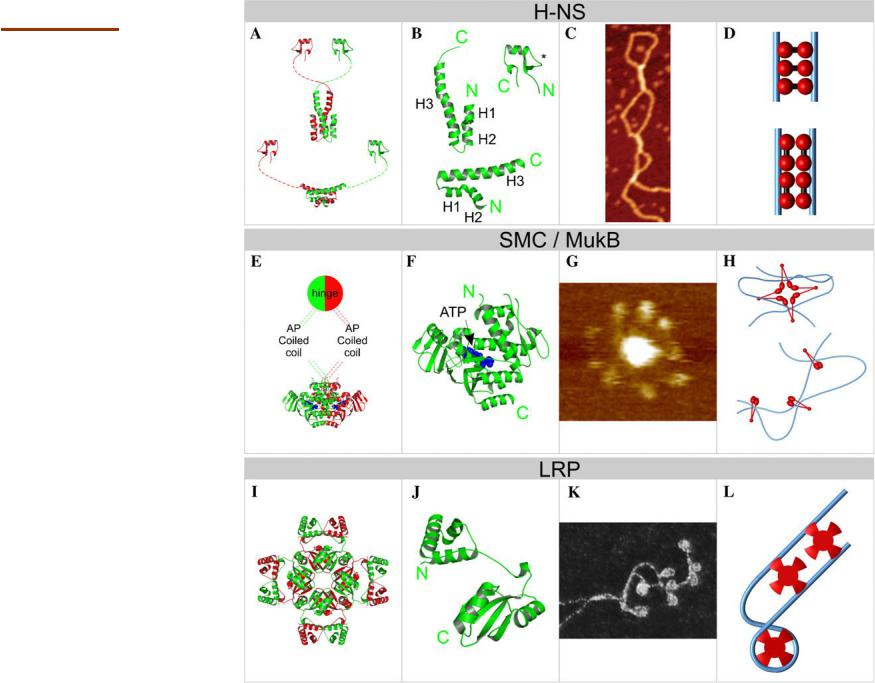
DNA bridging proteins
H-NS histone-like
nucleoid structuring protein
SMC
Structural maintenance
of chromosomes
Lrp leucine-responsive regulatory protein
Luijsterburg MS et al. Journal of Structural Biology 156 (2006) 262–272
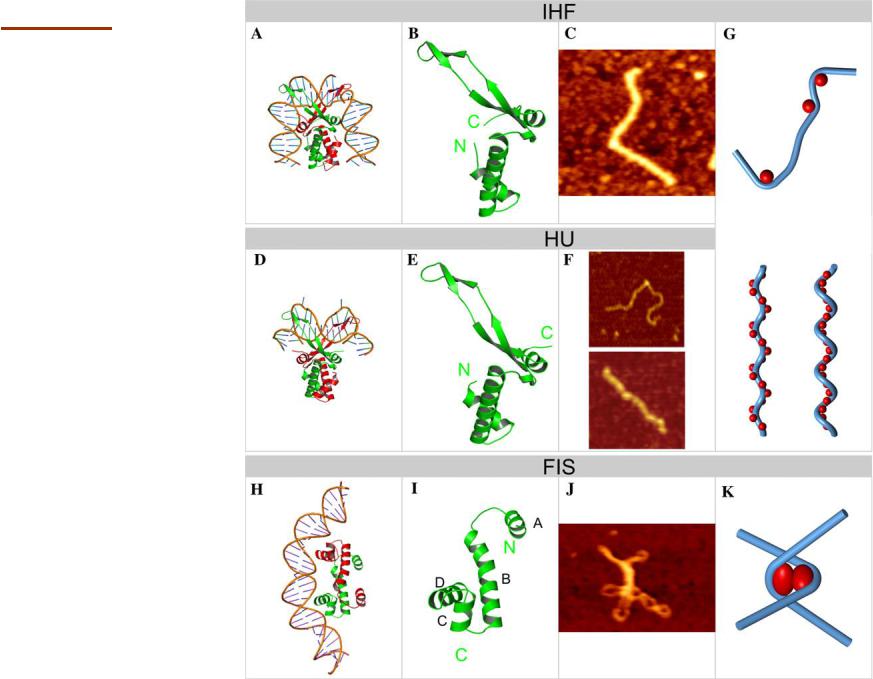
DNA bending proteins
IHF integration host factor
HU
histone-like protein from E. coli strain U93
Fis
factor for inversion stimulation
Luijsterburg MS et al. Journal of Structural Biology 156 (2006) 262–272
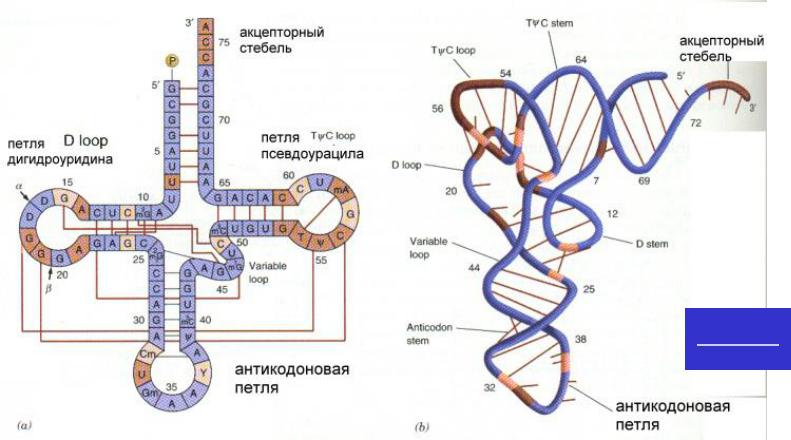
17 |
|
|
|
Типы РНК и их распространенность |
|
||
|
|
||
|
rRNA, рРНК |
рибосомальная |
~80% |
|
tRNA, тРНК |
транспортная |
~15% |
|
mRNA, мРНК, иРНК |
матричная или информационная |
<5% |
|
sRNA, мяРНК, мцРНК |
малая (ядерная, цитоплазматическая) |
<2% |
|
|
|
|
СТРУКТУРА РНК
Phe6TNAt-RNA
6TNA
Phe t-RNA
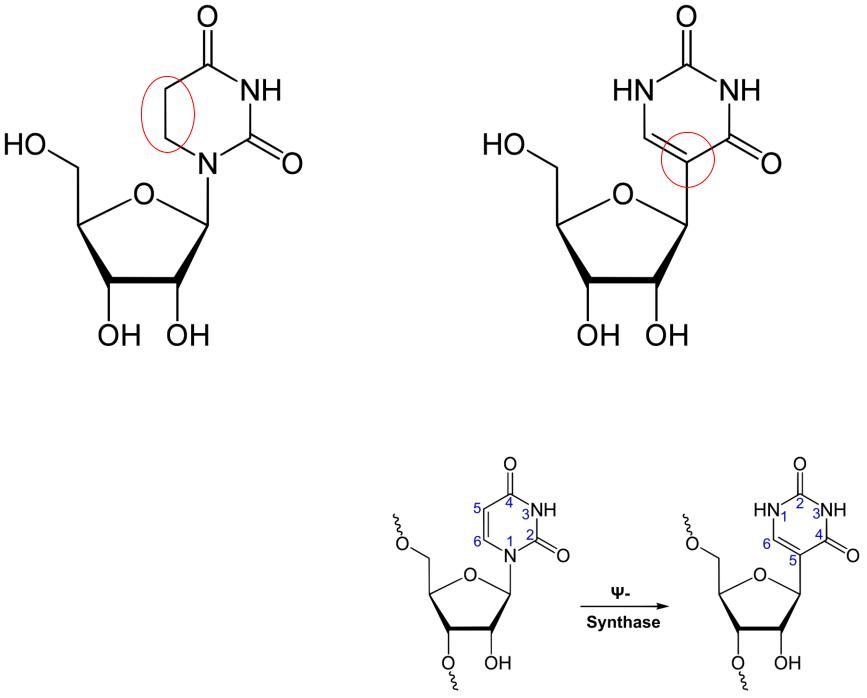
Дигидроуридин |
Псевдоуридин |
|
́ |
(обозначается как D, DHU или UH2) |
(обозначается греческой буквой Ψ) |
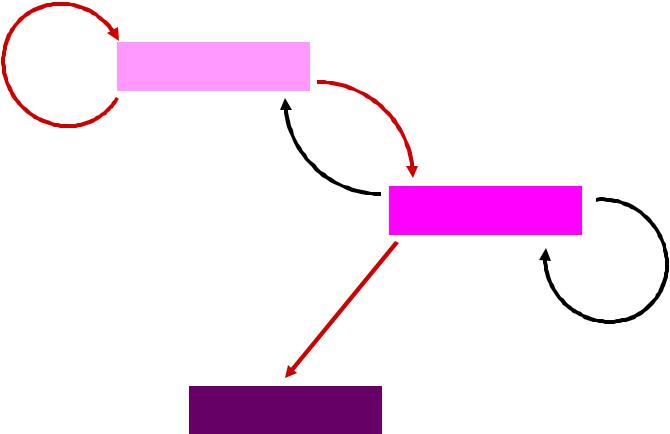
18
Репликация
ИНФОРМАЦИОННАЯ СВЯЗЬ МЕЖДУ ДНК, РНК И БЕЛКАМИ
ДНК
Транскрипция
Обратная
транскрипция
РНК
Трансляция
Транскрипция и
репликация РНК
БЕЛКИ
(центральная догма молекулярной биологии)
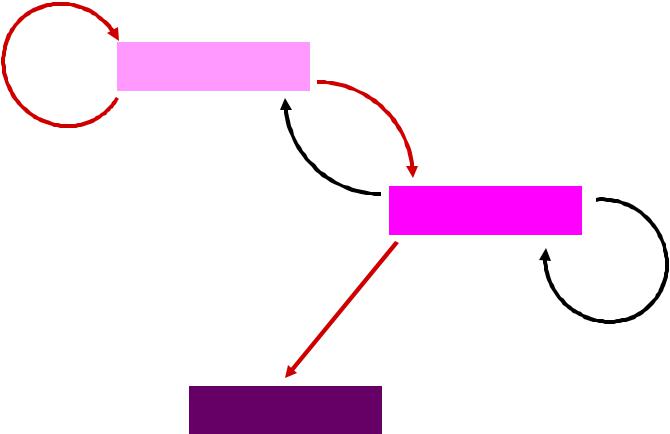
18
Репликация
ИНФОРМАЦИОННАЯ СВЯЗЬ МЕЖДУ ДНК, РНК И БЕЛКАМИ
ДНК
Транскрипция
Обратная
транскрипция
РНК
Трансляция
Транскрипция и
репликация РНК
БЕЛКИ
